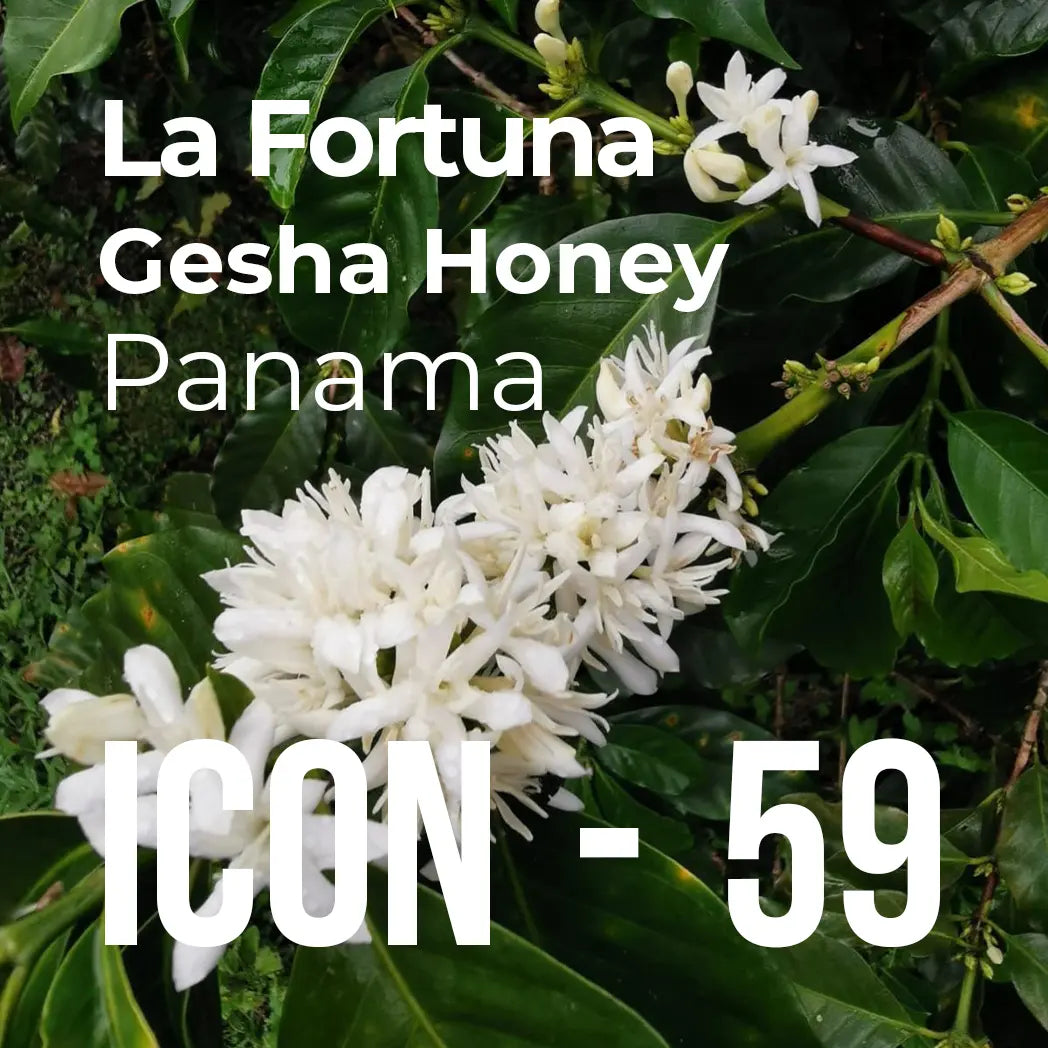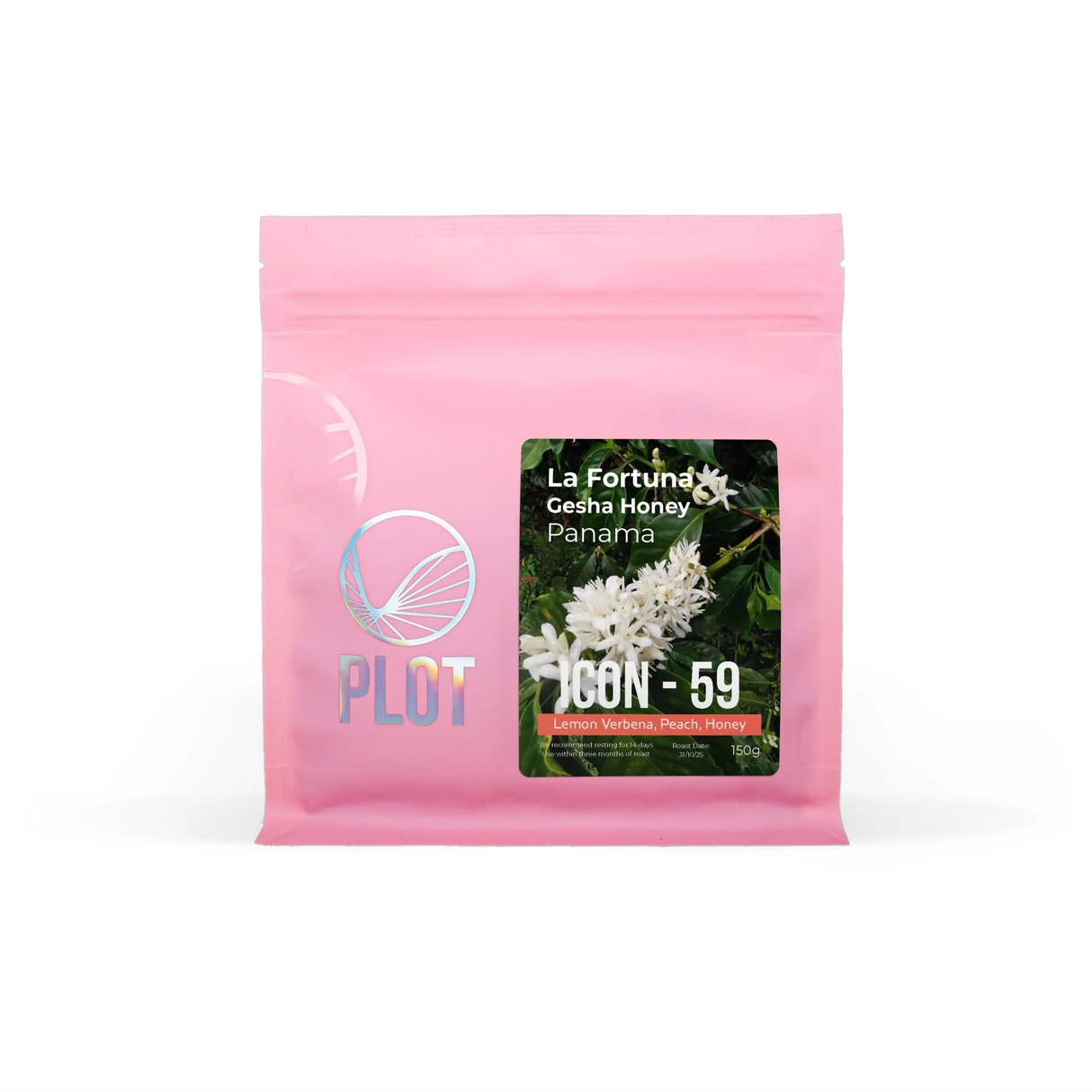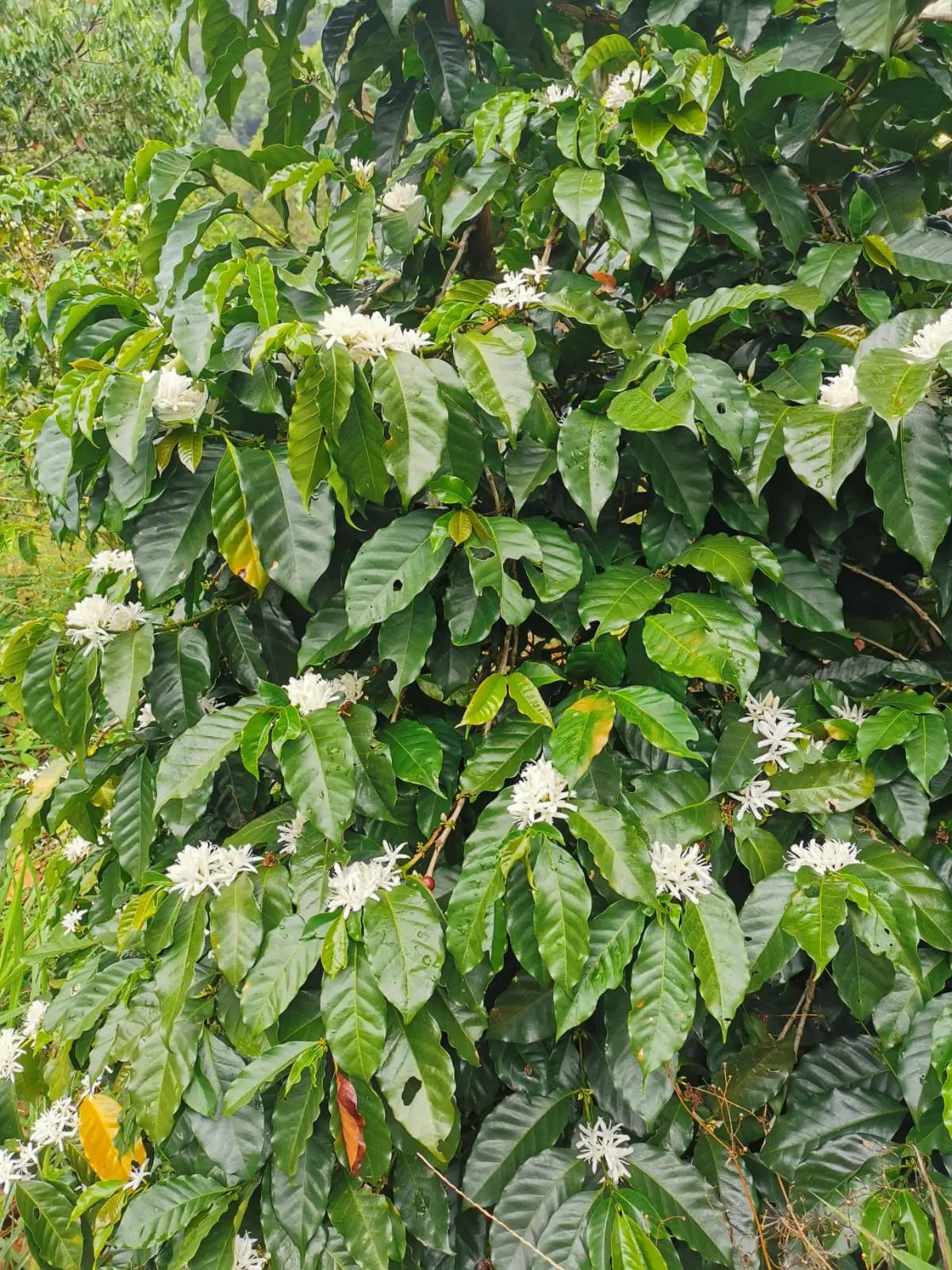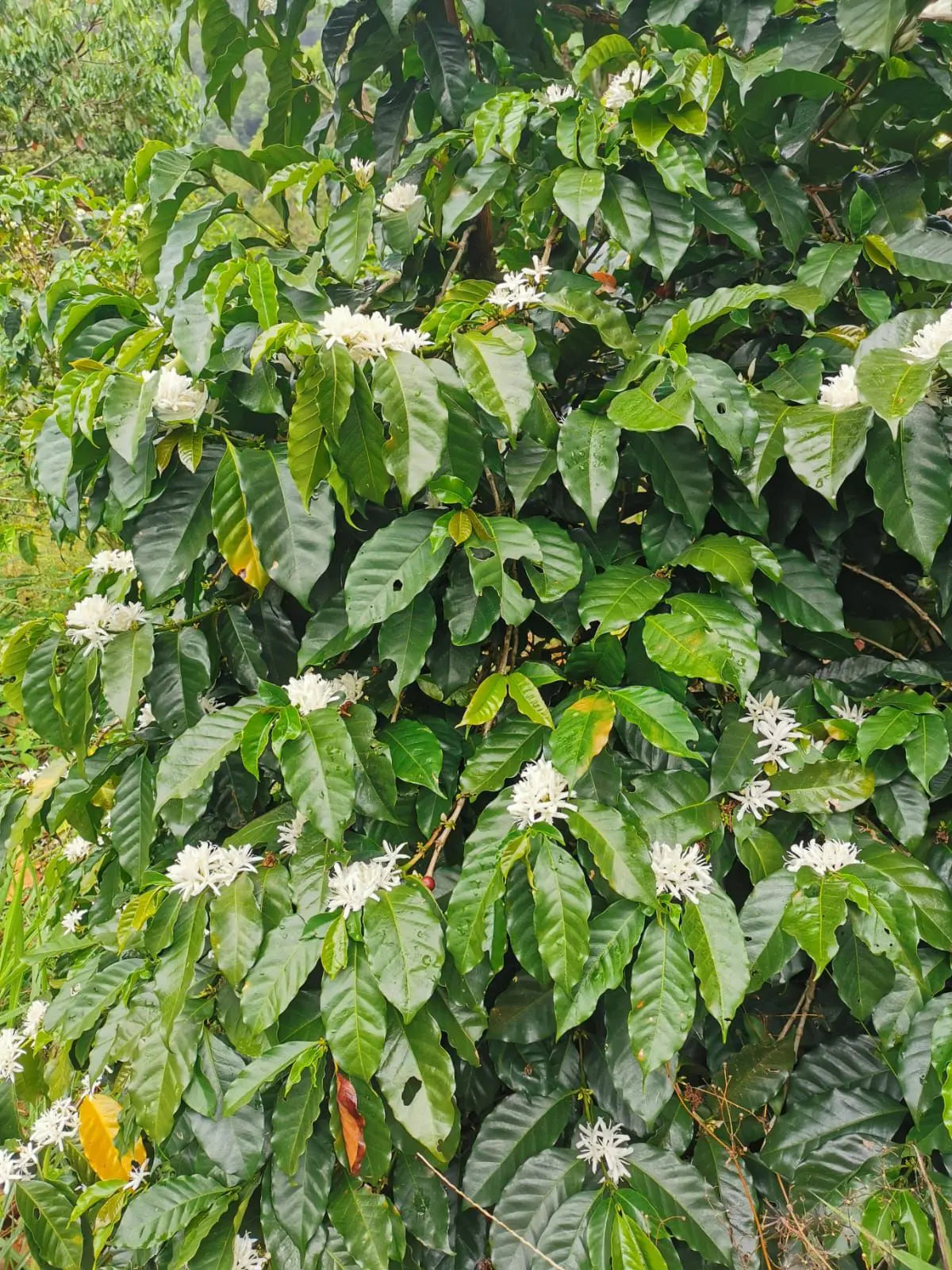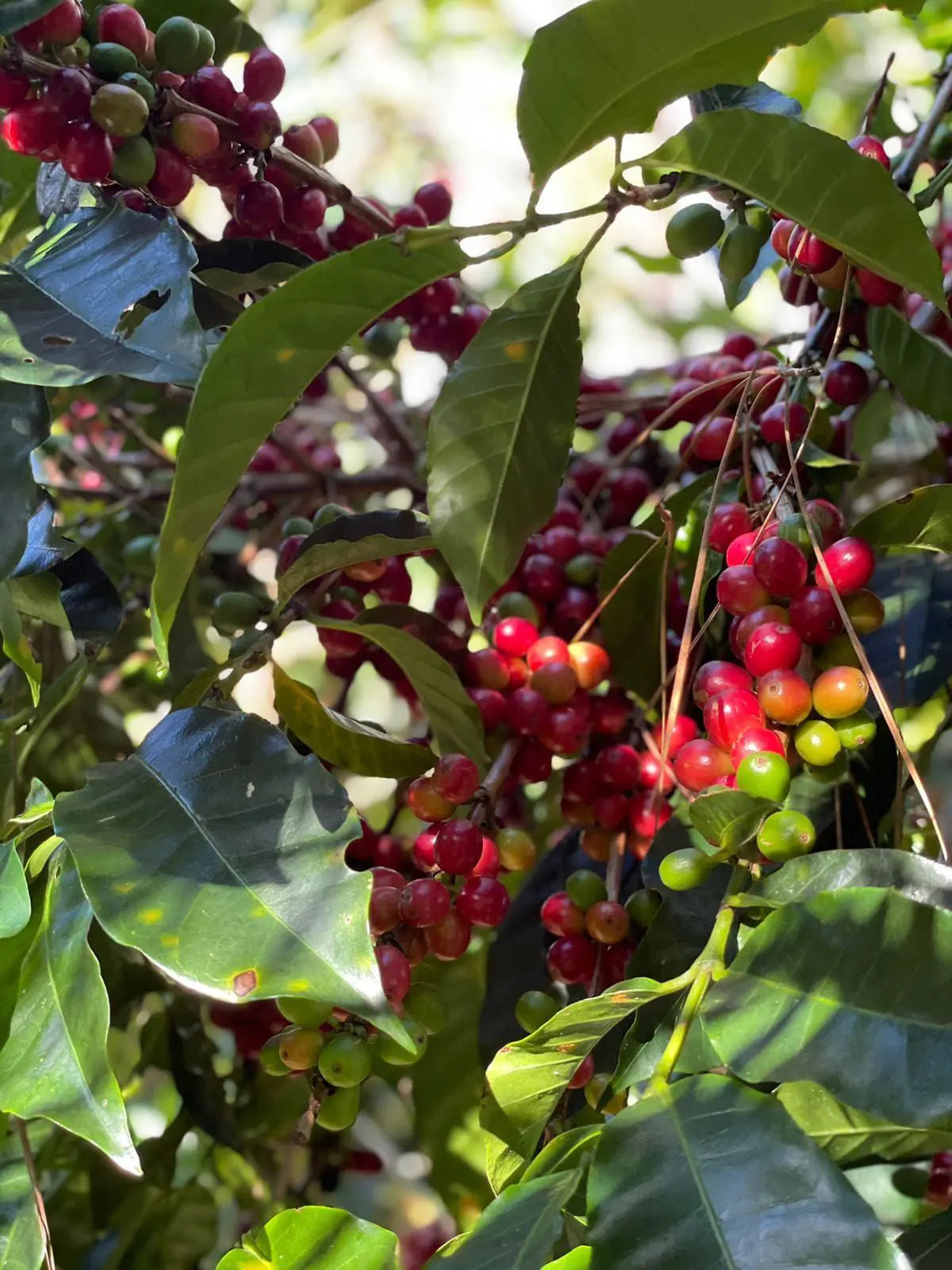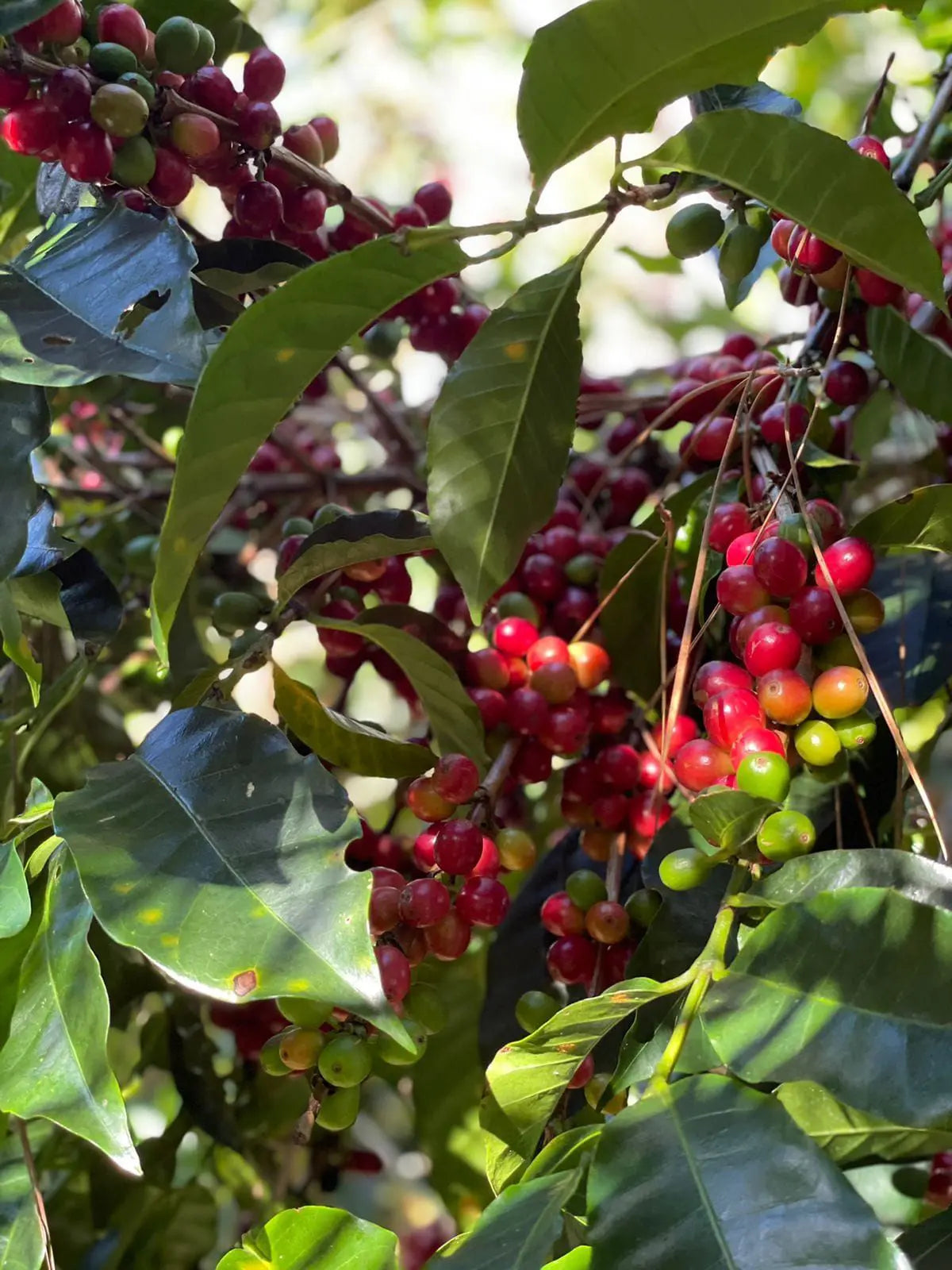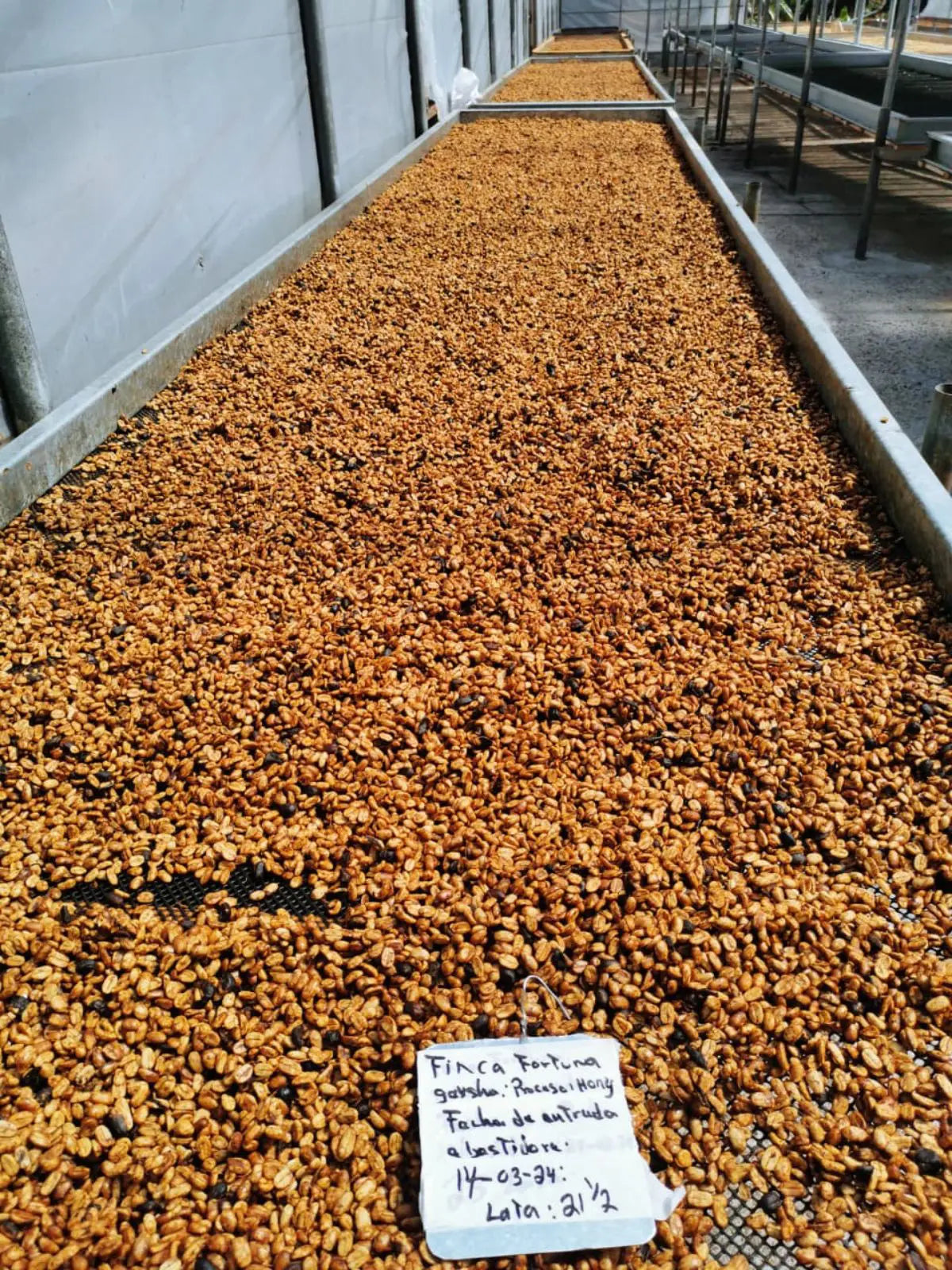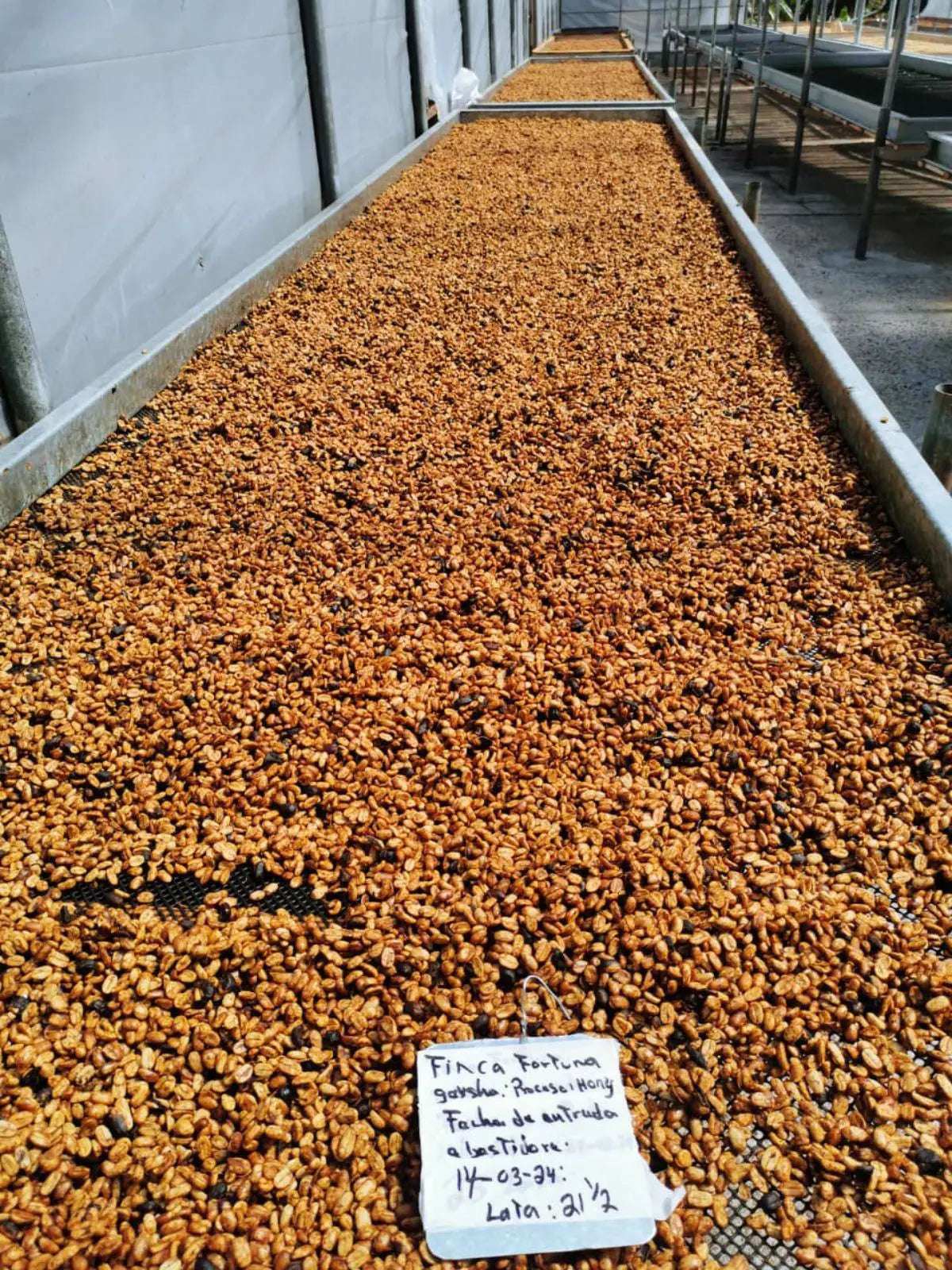ICON 59 - La Fortuna, Gesha Honey
£26.75
Unit price
/
Unavailable
ICON 59 - La Fortuna, Gesha Honey - 150g is backordered and will ship as soon as it is back in stock.
Lot Info
Lot Info
Producer
Producer
Cultivar
Cultivar
Process
Process
Traceability
Traceability
| Producer | Café Gran del Val |
| Location | La Fortuna, Volcán Barú, Boquete, Chiriquí, Panama |
| Elevation | 1,550 - 1,600 masl |
| Cultivar | Gesha |
| Preparation | Honey |
| Harvest | December - March 2025 |
| Arrival | August 2025 |
| Importing Partner | Summit Specialty Coffee |

